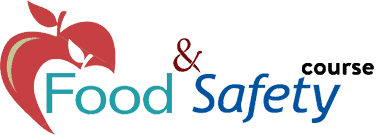What is food safety training in Mississauga?
The terms ‘food safety training’ are very familiar to anyone in the food business. In Ontario, food handlers who work in establishments that handle food considered medium or high-risk for contaminate are required to receive Food Safety Training in Mississauga (and get certified for it). Specifically, the by-law requires food establishments to have a certified staff members present at the facility at all times food is being handled or sanitation is going on. This means, a food handler is not required by law to receive food safety training; however there is a chance that a food handler working in an establishment will be asked by the owner or manager to receive training and become certified.
Programs you can sign up for at Mississauga First Aid
We cater to all kinds of students at Mississauga First Aid, whether you work in food service or simply cook for yourself at home. Our basic training course in food safety is the best choice for beginners, being an introductory course to food safety and the minimum level of training required by Ontario’s by-law for mandatory food handler training. Prepare to learn about microbiology, health, and sanitation which are part of the core curriculum.
The next level of training is advanced food safety training, which targets food business owners and managers (staff members with supervisory capacity). Because it is an advanced level, basics are just run through – which is why all trainees are asked to take basic food safety training beforehand. The core curriculum focuses on how to run a food establishment – the nitty gritty on health permits, staff training, and facility design – basically what managers/owners should know before opening a food business.
Learning about foodborne illness
Diarrheal complications kill approximately 2.2 million people all over the world each year. Because vulnerable populations who live in rural communities often have poor access to clean water and healthcare, a simple case of foodborne illness can be fatal. The same goes for Canada. Complete statistics are hard to come by because of poor reporting, foodborne illness remains a problem in the country and all over the world. An estimated four million Canadians are infected with foodborne illness each year – a number country’s health authorities want to reduce.
Foodborne illness infects people when food that is consumed by a person is contaminated – either with bacteria/viruses or chemicals. These pathogenic substances end up on food because of improper handling at any step in the food handling process.
Microorganisms and chemicals that are the most common causes of foodborne illness are:
- Norovirus, Campylobacter spp., Clostridium perfringens, Non-typhoidal salmonella, and Staphhylococcus aureus.
- Pesticides, household chemicals (used for cleaning, etc.)
Basic food safety tips
- Keep washing your hands! Wash them between handling different kinds of food and performing different activities- produce and raw meat, cooked and raw food, cooking and sanitizing, etc.
- Wear protective gear if need (usually in food establishments), such as aprons and gloves
- Maintain food personal health and hygiene to decrease the risk of you infecting a consumer with your illness.

